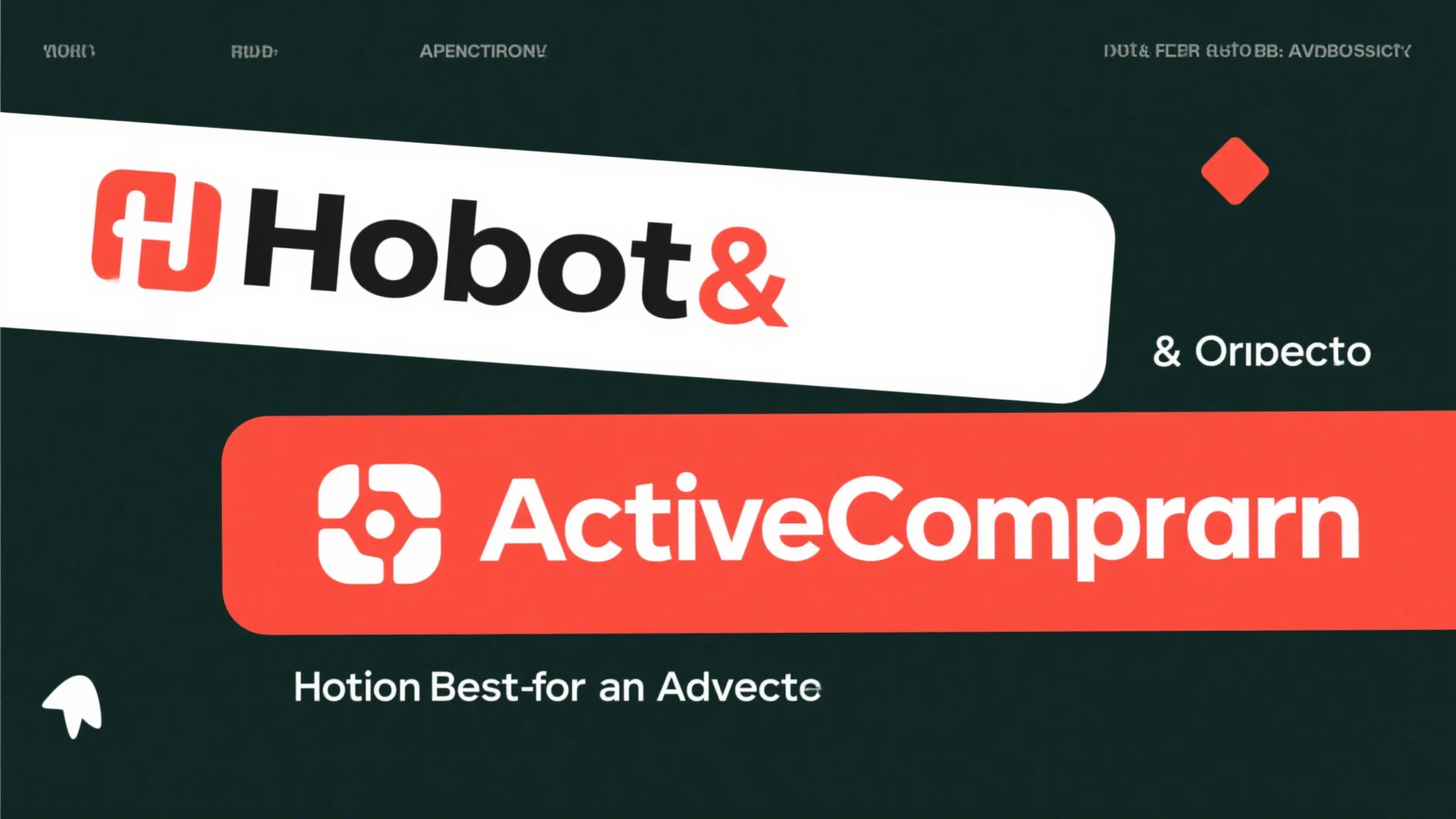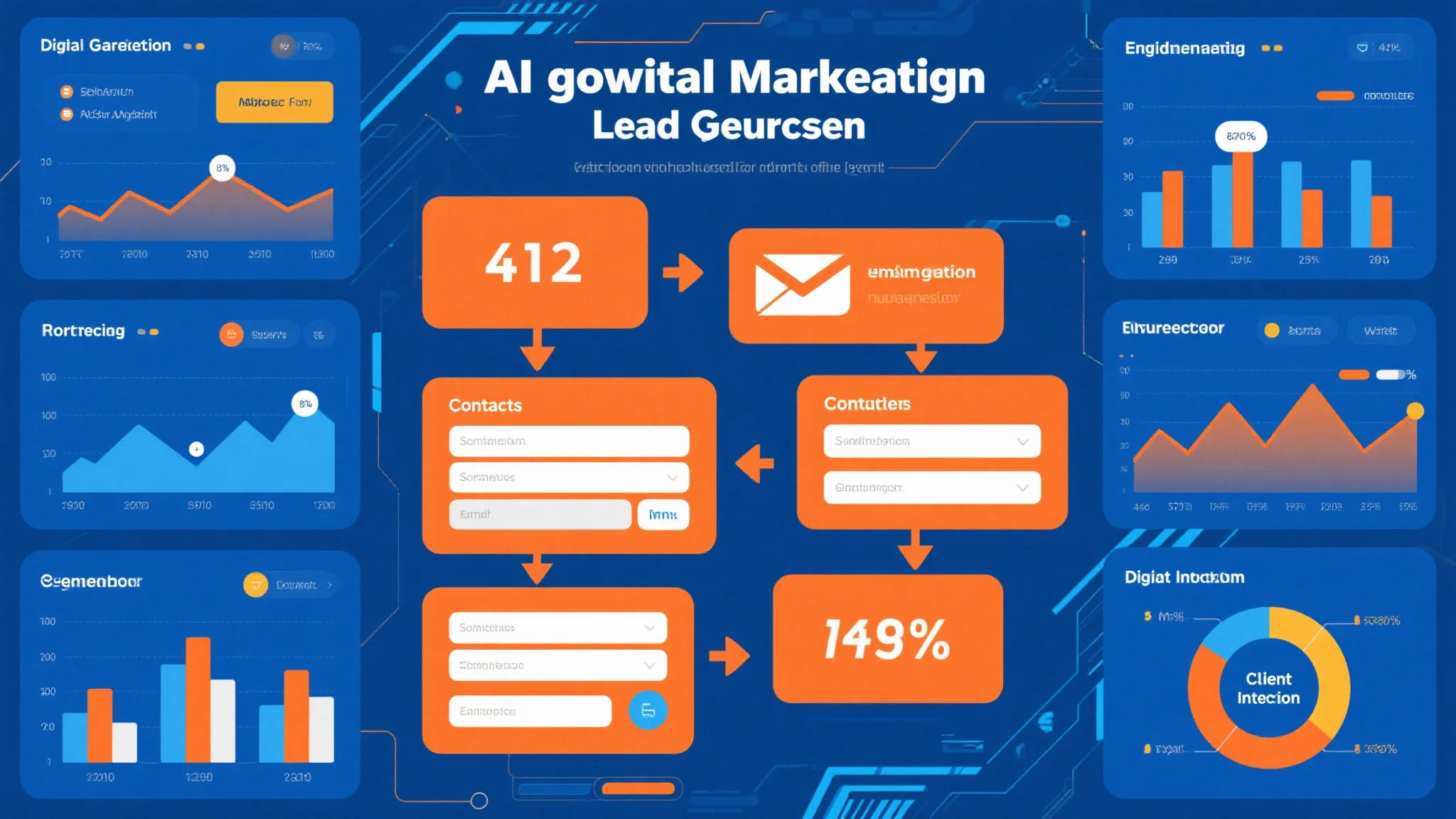In the ever-evolving world of marketing, agencies are turning to AI to streamline lead generation and nurturing processes. This article explores how AI-powered tools are enhancing efficiency, personalization, and decision-making, ultimately driving business growth.

In today’s competitive marketing landscape, agencies are under constant pressure to deliver results. Whether it’s generating high-quality leads or nurturing existing prospects, the demands on marketing teams are immense. Enter artificial intelligence (AI)—a game-changer that’s transforming how agencies approach lead generation and nurturing.
AI isn’t just a buzzword; it’s a powerful tool that empowers agencies to make data-driven decisions, automate repetitive tasks, and deliver personalized experiences at scale. By leveraging AI, agencies can streamline their operations, improve lead quality, and ultimately drive higher ROI for their clients.
1. AI-Driven Lead Generation: The Future of Outreach
Lead generation is the lifeblood of any marketing agency. Without a steady flow of high-quality leads, even the most talented team can struggle to meet its goals. Traditionally, lead generation relied on manual processes, such as email campaigns, cold calling, and social media outreach. But these methods are time-consuming, inefficient, and often yield low returns.
AI is changing the game by automating and optimizing lead generation processes. Here’s how:
Identifying High-Quality Leads: AI-powered tools analyze vast amounts of data to identify leads that are most likely to convert. By leveraging predictive analytics, agencies can focus their efforts on prospects with a higher probability of becoming paying clients.
Personalized Outreach: AI enables agencies to send highly personalized messages to leads based on their behavior, preferences, and demographics. For example, if a lead visits a specific service page on your website, AI can trigger an automated email that speaks directly to their needs.
Automating Follow-Ups: AI can handle repetitive tasks like follow-ups, reminders, and email nurturing, freeing up your team to focus on more strategic activities. This ensures that leads are never missed and relationships are maintained.
2. The Role of AI in Lead Nurturing
Lead nurturing is the process of guiding prospects through the buyer’s journey until they’re ready to make a purchase. It’s a critical phase that often determines whether a lead converts or falls away. AI plays a pivotal role in making this process more effective and efficient.
Personalized Content Delivery: AI algorithms analyze a prospect’s behavior, such as which pages they visit, which emails they open, and which content they engage with. Based on this data, AI can recommend and deliver personalized content that resonates with their interests and pain points.
Predictive Analytics for Nurturing: AI can predict where a lead is in their journey and recommend the next best action. For example, if a lead is still in the awareness stage, AI might suggest educational content like a blog post or webinar. If they’re closer to making a decision, AI could recommend a case study or a free consultation.
Dynamic Email Campaigns: AI-powered email marketing tools can create and send dynamic email campaigns that adapt in real-time based on a prospect’s actions. For instance, if a lead clicks on a specific product page, the email they receive could feature that product or related services.
3. AI and Lead Scoring: Prioritizing Efforts
Lead scoring is another area where AI is making a significant impact. By assigning scores to leads based on their behavior and demographics, agencies can prioritize their efforts on the most promising prospects.
AI-powered lead scoring systems use machine learning algorithms to analyze data points like website visits, email opens, form submissions, and social media interactions. These systems continuously refine their scoring models based on historical data, ensuring that leads are scored more accurately over time.
This level of precision allows agencies to focus their resources on high-potential leads, reducing wasted time and improving conversion rates.
4. AI-Driven Marketing Automation: Streamlining Processes
One of the most significant advantages of AI in marketing is its ability to automate repetitive tasks. From email campaigns to social media posts, AI-powered tools can handle routine activities with speed and accuracy, freeing up your team to focus on creative and strategic work.
Automated Ad Campaigns: AI can manage and optimize paid advertising campaigns across multiple platforms. For example, AI can adjust bids, target the right audience, and rotate ads based on performance data.
Social Media Management: AI tools can schedule posts, monitor engagement, and even respond to comments and messages. This ensures that your agency’s social media presence is always active and engaging.
Chatbots for Lead Qualification: AI-powered chatbots can engage with website visitors in real-time, answering questions, providing recommendations, and qualifying leads. This not only improves the visitor experience but also helps agencies identify high-potential leads early in the process.
5. AI and the Customer Journey: Enhancing Experiences
The customer journey is a complex and ever-changing path. Agencies that can map and adapt to this journey are more likely to succeed in converting leads. AI makes this possible by providing insights into customer behavior and preferences, enabling agencies to deliver tailored experiences at every stage.
Real-Time Insights: AI tools can provide real-time data on a prospect’s interactions with your agency, such as which pages they’ve visited or which emails they’ve opened. These insights allow agencies to adjust their approach on the fly, ensuring that prospects receive the most relevant information.
Proactive Engagement: AI can alert agencies to key moments in the customer journey, such as when a lead is ready to make a decision or when they’ve shown interest in a specific service. This proactive approach helps agencies stay ahead of the competition.
Continuous Improvement: AI algorithms learn from every interaction, allowing agencies to refine their strategies and improve outcomes over time. This continuous improvement ensures that agencies are always optimizing their lead generation and nurturing efforts.
6. Case Studies: AI in Action
To see the impact of AI in lead generation and nurturing, let’s look at a few real-world examples:
Agency A used AI-powered predictive analytics to identify high-potential leads. By focusing their efforts on these leads, they saw a 30% increase in conversion rates.
Agency B implemented AI-driven chatbots on their website. This not only reduced the time it took to qualify leads but also improved the overall visitor experience.
Agency C leveraged AI to automate their email marketing campaigns. By sending highly personalized emails based on prospect behavior, they achieved a 25% higher open rate and a 15% higher click-through rate.
These case studies demonstrate the tangible benefits of AI for agencies. By embracing AI, agencies can not only improve their lead generation and nurturing processes but also gain a competitive edge in the market.
:
AI is revolutionizing the way agencies approach lead generation and nurturing. By automating tasks, personalizing experiences, and providing real-time insights, AI empowers agencies to be more efficient, effective, and client-focused. As the technology continues to evolve, agencies that embrace AI will be better positioned to meet the demands of the ever-changing marketing landscape.
The future of marketing is here, and it’s powered by AI. Are you



